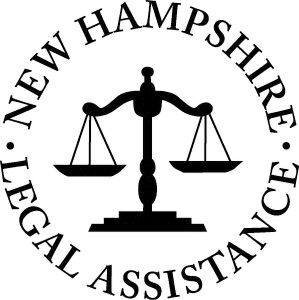If You Have Children, Know Your Fair Housing Rights!
Were you only offered a ground floor apartment because you have kids? You have rights under the Fair Housing Act that prevents this type of discrimination.
While we love our children and many of us find them absolutely delightful, when it comes to some landlords and property managers, many may have a slightly different perspective. Some landlords may find children careless, messy, and noisy. Others may not want to rent to families with young children because they fear the children will cause damage to the property. Sometimes the fear is that young children may annoy other tenants or otherwise be a nuisance.
The Fair Housing Act makes it illegal for a prospective landlord to refuse to rent to someone because they have children or to steer families with children towards particular apartments, such as only those on the ground floor.
The Fair Housing Act of 1968
In 1968, as the final part of the Civil Rights Act of 1964, Congress passed the Fair Housing Act (FHA). This law made it illegal for landlords to discriminate against potential renters who have children under age 18, while also specifying other protected categories of tenants and home buyers.
According to the FHA, familial status is a protected category, along with national origin, race, color, religion, disability, and sex. The FHA outlaws discrimination by landlords toward renters with children, beginning with the application for tenancy through eviction.
Discrimination Against Families With Children
The Fair Housing Act protects not only families with children against housing discrimination, but it also protects women who are pregnant, households that provide foster care, households in the process of adopting a child, and parents getting custody of a child through divorce.
It is illegal under federal law to refuse to rent to you or discriminate against you because you have children. For example, if you are a parent with two children, a real estate agent or landlord cannot tell you that you would be crowded in a particular apartment, but then rent the place to three college students.
Similarly, a landlord cannot tell you that you must live in a ground floor apartment because of your young children. A landlord cannot charge you a higher security deposit or insist on more frequent inspections because you have kids either.
There are some exceptions to these general rules. For example, certain buildings or communities intended for residents 55 years or older may lawfully refuse to sell or rent to families with minor children if they qualify under the Housing for Older Persons exemption. Another exception might be when a family is so large that it exceeds the municipal fire code regulations for residents per room.
Even in the rare situations when a landlord can legally refuse to rent to families with children, they cannot publish, advertise, or make written or verbal statements that they will not rent to children. Most landlords avoid advertising “apartment not appropriate for kids” and similar statements because they know it is illegal.
An agent, property manager, or broker is in violation of the law if they refuse to show or rent a property to families with children if they are carrying out the instructions of an owner.
Two Other Considerations When Renting With Children
Lead Paint
Because lead is so dangerous and lead poisoning is a serious disease, NH law requires a landlord to address lead paint hazards in an apartment if a child under the age of 6 lives in the property and has an elevated blood lead level, over a certain threshold. In NH, it’s also illegal for a landlord to refuse to rent you an apartment because it has lead paint.
Because some landlords may want to avoid deleading an apartment, they may attempt to avoid the issue altogether by illegally refusing to rent to families with children. A subtle form of discrimination against families with children is to ask the age of children on the rental application. You do not need to list your children’s ages. Instead, just list the names of everyone who will be living in the unit. If the landlord insists, it may indicate that they are attempting to avoid renting to a family with young children, to avoid potential lead paint removal issues.
Apartment Size
You may find that landlords require you to rent a unit with a certain number of bedrooms, depending on your family size. For example, a landlord might have a rule that a single parent with a young child must apply for a twobedroom apartment, even though that same landlord would agree to rent a one-bedroom apartment to a two-person adult household. This rule would violate fair housing laws because these two two-person households are being treated differently because one household has a child.
As mentioned above, a landlord can sometimes reject a tenant based on family size to comply with state and local housing codes. However, the landlord should treat all tenants or prospective tenants the same when complying with these codes.
Know Your Housing Rights
When you are renting with kids, discrimination and violation of your housing rights is not uncommon and can be blatant or quite subtle. It’s important to have at least a basic understanding of your housing rights and how to recognize discrimination. If you feel that you may have suffered discrimination when shopping for an apartment for yourself and your children, you have options. Contact NHLA’s Fair Housing Project to learn more.
Refusing to rent to a family with children and steering a family with children to a specific apartment are illegal under federal and state law. If you believe you have been a victim of housing discrimination, call us. NHLA’s Fair Housing Project is here to help!

